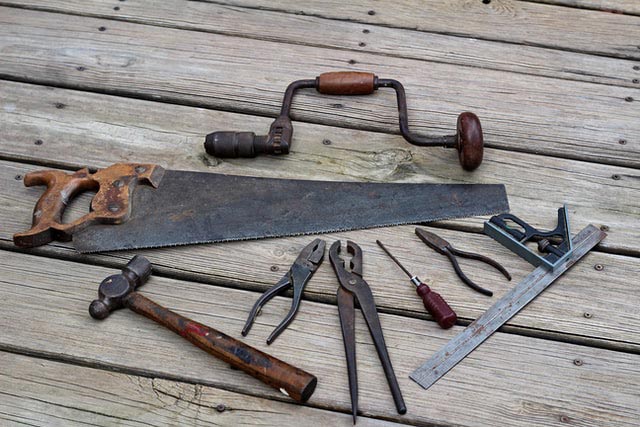Many years ago, I sat with a 70-year-old man named Bill. Bill’s eyes crinkled when he smiled, revealing decades of good humor, kindness, and wisdom. Bill was a man filled with stories of people and places far beyond the scope of what most of us have encountered. His life was rich with experiences, and he regaled me with countless stories about his lifelong service to God’s mission.
While in their early 30s, Bill and his wife lived in a very remote island in the South Pacific. They were there to serve and give of themselves so others would come to know Jesus.
One day on the island, a man came to Bill’s door and asked if he could borrow Bill’s saw. The man was doing some work on his house and needed to cut some new pieces of wood. Bill quite happily loaned the man his saw. After a few days, the saw had not yet been returned. Bill wasn’t sure how to approach the subject, and certainly didn’t want to ruffle any islander feathers, so he waited. A week or so passed, and Bill finally encountered the man on the street. He said hello, and asked about the man’s wife and children, his work, and his home, all the while hoping the man would mention the saw. But he didn’t. No such luck. Bill decided not to bring it up either and instead chose to continue waiting.
Well, he waited and waited and waited. Many months later, Bill needed to use the saw himself, so he asked the man if he could have it back. The man directed Bill to another man who had borrowed the saw. When Bill approached that man, he was told to talk to another man who had also borrowed the saw. Bill followed the trail from one home to the next, to the next, to the next and discovered that over the last few months — when the saw would have otherwise been sitting unused at Bill’s home —it had been put to good use by six or seven different families. Sure enough, at the last home he found the saw and was able to complete his own improvement project.
Bill smiled as he reflected on the way the islanders viewed community and resources. People did not look upon Bill’s saw as “his” saw, it was “the” saw. The islanders viewed things as owned by the community as a whole, and they took responsibility for keeping things in good shape, knowing that if they accidentally broke something or neglected to care for it, it would impact the entire community’s ability to use it.
That’s a hard concept for those of us in the developed world to contemplate, isn’t it? I mean, sure, I would lend my shovel to a neighbor. But if he went ahead and loaned my shovel to a complete stranger without asking me first, I’d probably be pretty annoyed. That’s not very polite.
Bill’s story makes me think I need to change my perspective on that. Or on a larger scale, maybe as Christians we should all be working to shift our collective viewpoint on possessions, for the benefit of God’s Kingdom.
How do you think God views my shovel? Is it mine, or is it a tool that should be shared freely — even beyond the scope of my “permission?”
What about something bigger, like my car? If I work from home, and a single mom in my community needs transportation to get to and from work a few days a week, do you think God would see my Subaru as “the” car?
What about something even bigger, like my finances? Do the immediate, sometimes urgent needs of others have to fit within the “giving” column of a budgeting spreadsheet? Or do I release my grip on my bank account, sharing my resources freely to help and bless others even when it may not make sense on paper?
Knowing God’s heart for His children, and His desire that we would all take part in His mission, makes these questions easy to answer, yet so very hard to do. If you grew up in the church, you probably frequently heard the message that your finances were blessings from God, and all money is His, not ours. He is the owner of everything — everything I have is His. He is the Creator of all things, the Giver of all things. That message does a good job of setting the table for the mindset required to start breaking down the fence and blurring the property line between what’s “ours” and what isn’t. We’re not giving what’s ours, we’re managing what’s His. But actually putting it into practice can be a daily battle until you see the ways God steps in, often miraculously, to help us along the way.
(as printed in Love Child by Geoff Peters, to be released in 2022)
